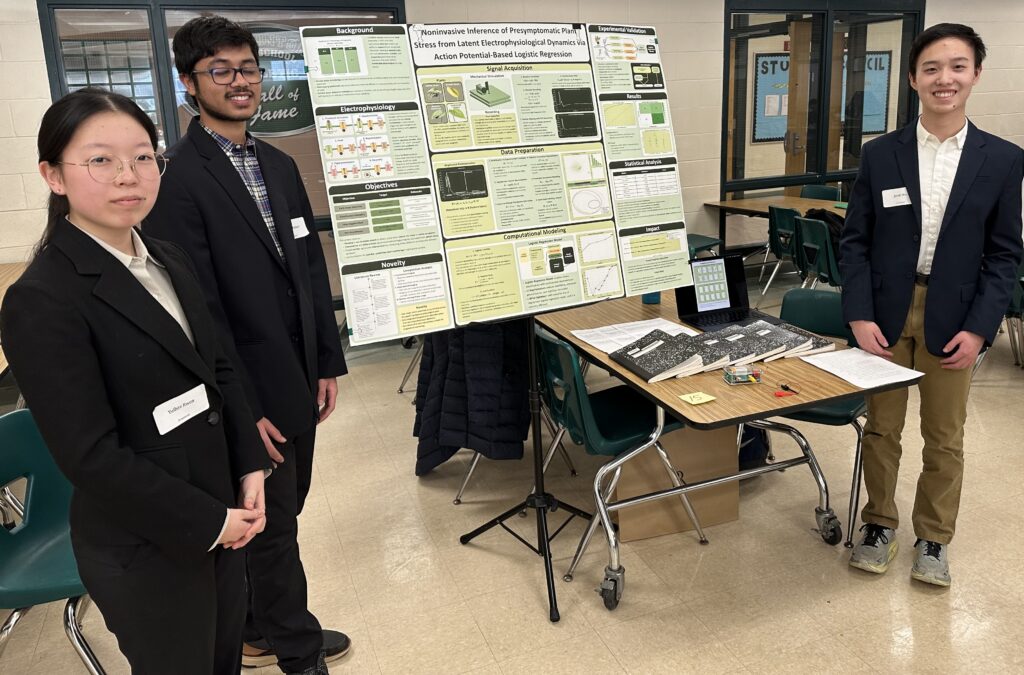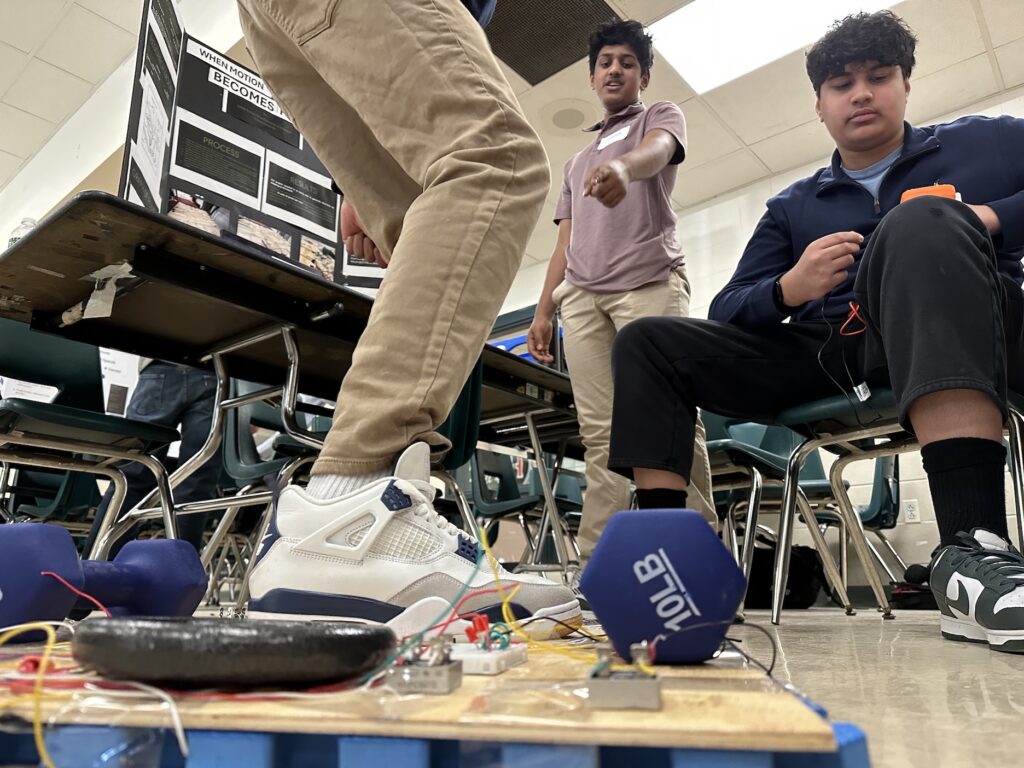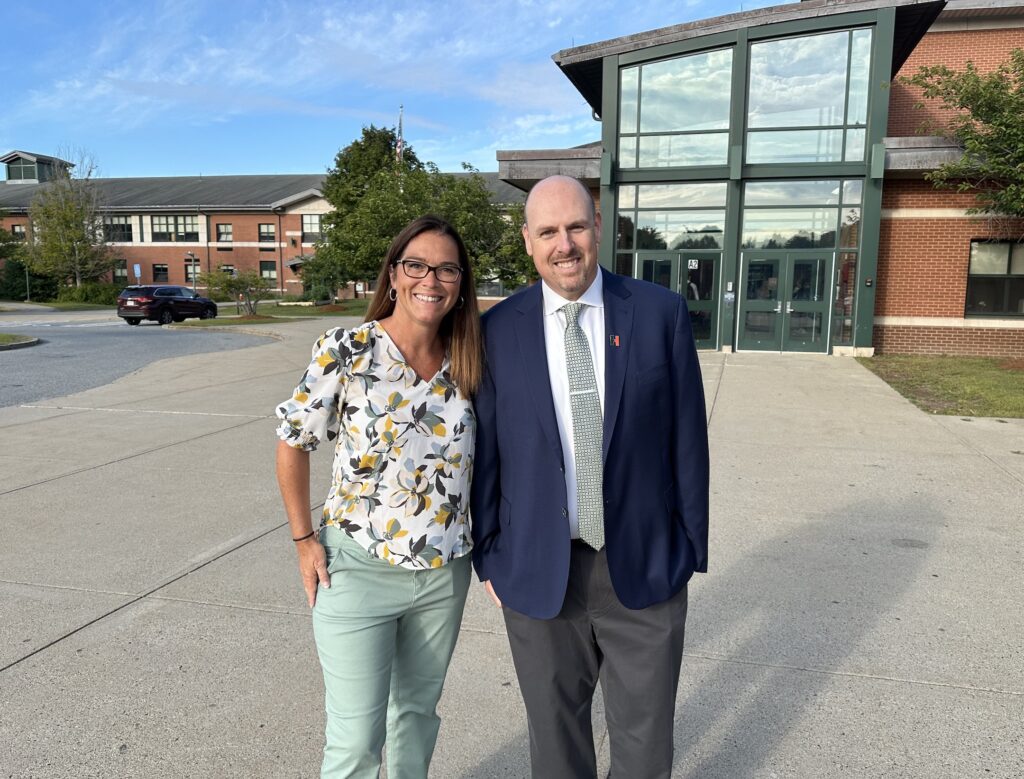During a mid-year “check-in” preceding a final, formal evaluation of Superintendent Carol Cavanaugh, School Committee member Holly Morand on Thursday questioned how more objectivity could be injected into the process and how the community at large could offer its perspective.
The superintendent earlier outlined the work to date in “indicators” of established goals. They fell under the categories of instructional leadership; laws, ethics, policies; family and community engagement; and professional culture.
School Committee chair Nancy Cavanaugh noted the process used to evaluate the superintendent is different from anyone else in the district. While the final evaluation report will be forthcoming at the end of the school year, before the town election, this “check-in” is designed to help the board identify ways to support the superintendent in achieving goals, identify goals that may need adjustments, and eliminate any surprises at year’s end, Nancy Cavanaugh said.
Much of the ensuing discussion surrounded communication and specifically the difficulties that arose during the budget process when proposal cuts to speech, physical and occupational therapy met with public outcry.
The superintendent said she and other administrators and directors are tasked with bringing forth a fiscally responsible budget for the department. She said she understood the response of groups like the Hopkinton Teachers Association (HTA) and Special Education Parents Advisory Council (SEPAC) and realizes, “There’s work to do in cleaning all of that up.”
Morand spoke about finding ways “as advocational leadership” representing the community to ensure all stakeholders could have a voice in the review process.
School Committee member Lya Batlle-Rafferty said because it was not an expectation at the beginning of the process, it wouldn’t be fair to have a “climate survey” this year but was something the committee could think about for the future.
Batlle-Rafferty noted at her work, “When I get a 360, I get to pick who is giving feedback.” She added it is helpful to receive constructive criticism but questioned whether that format would be appropriate for the superintendent’s evaluation.
“Do the folks we’re beholden to see things the way we do collectively or as individuals and the way Dr. Cavanaugh sees them?” Morand asked.
Morand added because of the way the budget process went, a lot was said about the need for more transparency and accountability. “Kindness, trust, community … starts at the top and trickles down,” she added.
Nancy Cavanaugh said she was interested in learning more about a 360 review but as something separate from this evaluation. She added it would have bargaining agreement implications that would have to be worked out.
The committee chair said board members need that kind of feedback about themselves as well to hear about possible things they could change.
Morand said she is in favor of the committee also being reviewed. “Our level, the superintendent’s level, it all goes with it being a two-way street.”
Batlle-Rafferty noted that the board usually doesn’t hear much from the public when things are going well.
Said committee member Jenn Devlin, “The people who are filling out reviews are the ones giving one stars.” She added that one of the jobs of a School Committee member is to evaluate and hire the superintendent.
“We’re elected to bring our judgment and get evidence,” said vice chair Amanda Fargiano. “Broad surveys are not going to give more objectivity.”
Fargiano said that when they gather each member’s evaluations of the superintendent and compile it into a report, the committee members have to put their preferences aside and “take a long view … looking for the direction we need to go.”
Nancy Cavanaugh said she values feedback especially when it is critical. “It challenges us to think how we can be better,” she said.
The chair said it is important for relationships to be repaired with SEPAC in light of the conflict that took place during the budget process.
As a parent of children with disabilities, Nancy Cavanaugh said, “SEPAC is vital to the community and to us for hearing from many voices.” She said they should be celebrating the fact that SEPAC went from having one board member, Jen Halliday, to becoming more unified with many people involved.
Even when times didn’t feel good for any of them, Nancy Cavanaugh said, SEPAC’s growth can be seen as positive. “It’s taking off, and I think that’s the next chapter.”
Devlin noted the superintendent’s progress toward accomplishing goals is “on track or surpassing,” and no year will be without its challenges. She said there are opportunities to improve communication with stakeholders like SEPAC going forward.
Fargiano acknowledged that the work of the Elementary School Building Committee on the Elmwood replacement project took up a lot of the superintendent’s time in addition to her other duties.
Batlle-Rafferty said it is “amazing” how the superintendent juggles so many balls in the air. She said “the hard relationships happening” are unlikely to be cleared up easily by May and suggested a re-focus on that goal over the next year.





















0 Comments